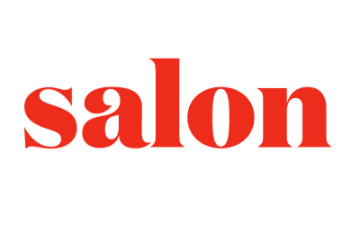
L-R: Jason Baker, Irina Raicu, and David Vossbrink
The overriding theme from the January 31st roundtable on social media and government at The Ethics Center, is that of paradox. We have a multitude of ways to communicate with our constituents, but this is proving to be a double edge "digital sword." Ethical dilemmas and issues of transparency, accountability, and authenticity, were the focus for panelists Jason Baker, Irina Raicu, and David Vossbrink, before an audience of local elected officials from Silicon Valley and the San Francisco Bay Area.
The following 6 principal dilemmas were discussed:
*Public vs. Private
In a culture where all tweets are archived in the Library of Congress, and enough has been written on Facebook privacy issues to fill a book, the public vs. private debate will be no doubt be with us for some time. Are there any truly "private" posts or, for that matter, private social media channels for elected officials, or is it simply a matter of time before that inevitable disparaging tweet published months ago suddenly reappears? While politicians can expect a loss of privacy as a right of passage in political success, a Facebook page for friends and family is not unreasonable expectation…or is it? While the delicate balance between public and private sorts itself out in social media's new deck of cards, caution and common sense are key. As Vossbrink commented: "The best advice when posting can be gleaned from Microsoft's famous saying: 'Don't be stupid.'"
*Speed vs. Accuracy
In this age of fast-forward news consumption, constituents expect rapid turnaround on the issues from their elected officials. The need for speed increases the margin for error, while the cost of being wrong raises the stakes. Many citizen journalists often "tweet without thinking," so elected officials need to set the example. Online and real-time, they must communicate efficiently and responsibly, handle crisis communications deftly, and be assertive in posting the facts, ensuring they are consistent throughout.
*Communication vs. Debate
The social media toolkit offers an "embarrassment of riches" for communicating local news and updates. But is it appropriate for elected officials to go beyond that and debate constituents online? Opinions varied on the value and appropriateness of extended engagement. Government officials should and indeed must convey credibility, authenticity, and clarity on the issues and respond to their constituents' needs, without getting mired in over communication and giving in to social media's Achilles Heel: the ease of publishing without permissions or filters.
*Quality vs. Quantity
"With social media, you can get too plugged in…you still need to talk to people," commented Baker, leading to discussion of the 3 C's introduced by Raicu: "Are we sacrificing 'Conversation' for mere 'Connection?'" she asked. And where is Communication in all this, which was the point in the first place? Social media, some experts argue, has made us superficial, resulting in distraction over discourse, and a disturbing new trend in online aggression, with bullying and – dare we say—lying, becoming increasingly commonplace. "If social media allows us to listen better, then it's profoundly ethical. Otherwise, we are wasting it," added Raicu.
*Social Policies vs. First Amendment
When staff members post on social media, are they representing themselves or their agencies? Administratively, it's a fine but critical distinction. We have the right to our opinions, but there are guardrails and increasingly sophisticated frameworks for behavior. In government offices, management is fine-tuning disclaimers and social policies on everything from tweets, to email retention procedures, to dual functioning digital gadgets for work and home, to record-keeping in public meetings --particularly in light of The Brown Act. Vossbrink, for example, keeps the distinction between public and private clear, only posting on his organization's social networks and cautioning against any blurring of the public-private persona.
*Consistency vs. Access
The silent majority can easily be displaced by the noisy minority when it comes to social media, creating a distorted political landscape in which the opinions of very few can dominate. Consistency in message and in two-way dialogue with constituents, both online and offline, is key to balanced communication in government affairs and in crossing the digital divide.
Ironically, even in this age of memes, hash tags, and vlogs, a surprising number of voices are not being heard--at least not in the latest tweet, blog post, or Facebook update. Many individuals and entire communities do not have or may not want access to social media. And so the age-old question in government still reigns: how do we become a more representative democracy if the majority don't participate? In looking toward the future of real world politics, we need to balance our digital selves with our humanity, and hope that the famous epithet "till human voices wake us and we drown," doesn't become a self-fulfilling prophecy.
Jason Baker has been a member of the Campbell City Council since 2008. He earned his B.A. in Political Science at the University of California at David in 1995, and received his J.D. Cum Laude from Santa Clara University School of Law in 2000. Irina Raicu, Internet Ethics Program director at the Ethics Center, is a Certified Information Privacy Professional and a graduate of SCU's School of Law. She also has a master's degree in English and American Literature from San Jose State University. David Vossbrink, a Stanford University graduate, is Director of Communications for the City of San Jose, and has worked in the field of local government public information for four decades.
Caroline Jaffe-Pickett is Assistant Director of Communications and Social Marketing at the Markkula Center for Applied Ethics.
February 2014


